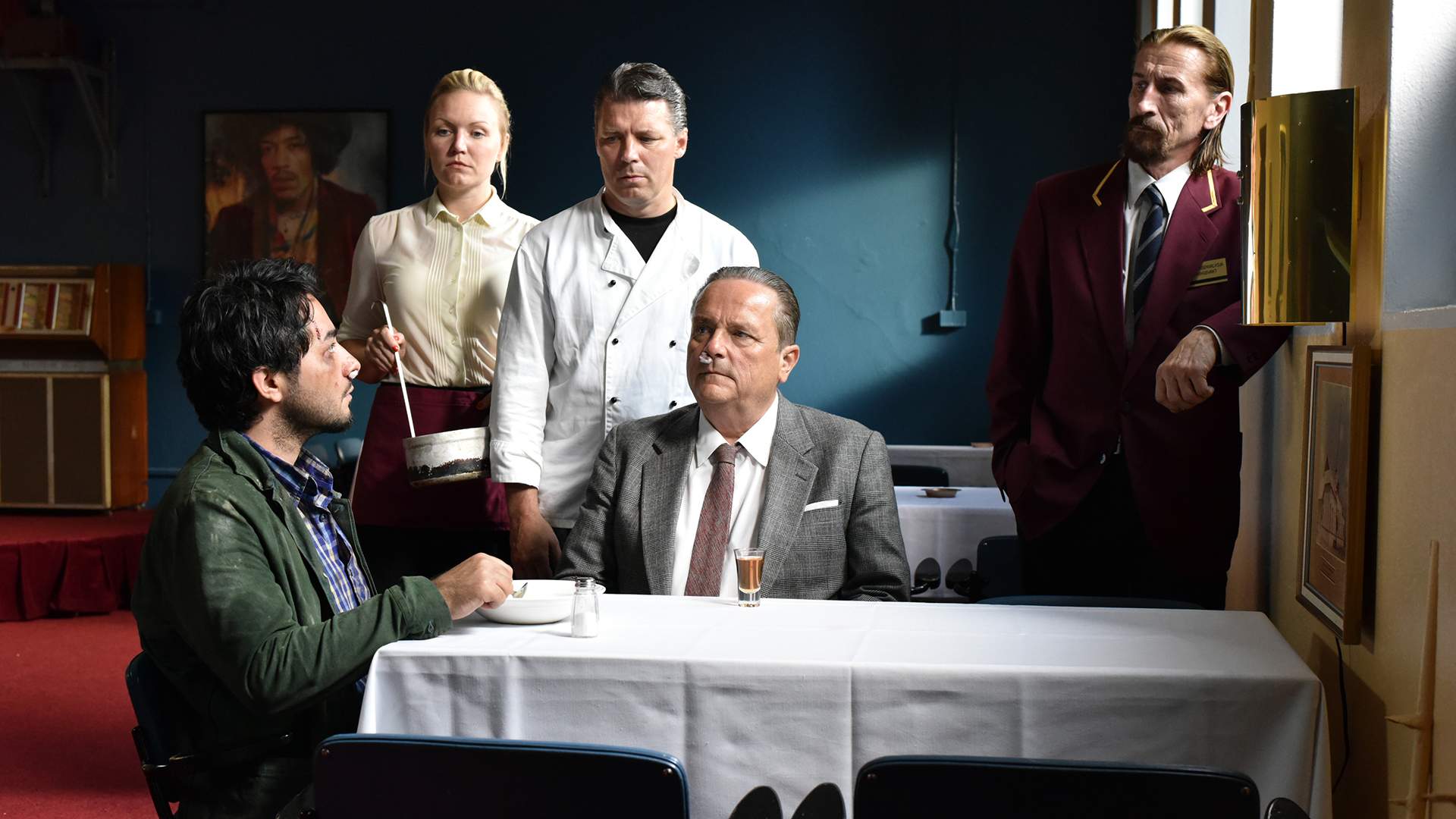The Other Side of Hope
Finnish filmmaker Aki Kaurismäki crafts an amusing and earnest look at Europe's refugee crisis.
Overview
In 2011's Le Havre, Aki Kaurismäki explored Europe's refugee crisis in his trademark way: with empathy, a droll sense of humour and a bittersweet outlook. He tackles the same subject with the same approach in The Other Side of Hope, although you could never accuse the Finnish filmmaker of simply retracing his own footsteps. Rather, the writer-director steps from a tale of transition to one of acceptance. It's a shift that not only reflects global events over the past seven years, but also comes with a much-needed message. What the world needs now is compassion, Kaurismäki posits — an idea that applies when asylum seekers arrive in prosperous nations searching for better lives.
The Other Side of Hope begins when Syrian refugee Khaled (Sherwan Haji) hops off a boat in Helsinki. Looking for a new home far from Aleppo, he just wants the chance to start afresh, however Finland proves far from welcoming. Meanwhile, leaving his wife and his old salesman life behind to enter the restaurant trade, Waldemar Wikström (Sakari Kuosmanen) requires help getting his new business going. Both men are fleeing their respective pasts, but Wikström's plight can't compare to Khaled's, and the film doesn't claim otherwise. Instead, after Wikström spies Khaled hiding behind his eatery, the movie shows how an act of kindness shapes their intertwined fortunes.
In other hands, a parade of cheesy cliches would ensue, but Kaurismäki isn't any other filmmaker. There's a reason that he's considered Finland's best living auteur, and why his movies receive widespread international attention. While they're the kind of plaudits that every director dreams of, no one views the world quite like Kaurismäki. He fills his frames with characters that wear their eccentricities on their sleeves, yet couldn't be more relatable. He shows people struggling with all types of problems, both commonplace and more extreme, while still banding together because it's the right thing to do. Further, he charts life's ups and downs without avoiding its sorrows, but never removing optimism from the equation either. Indeed, there's a word that sums up his work perfectly: humane.
Another word springs to mind: absurd. It's evident when a fight quickly turns into a job offer and when salted herring is served up as sushi, two of the movie's wry, hilarious developments. From its deadpan humour to its rockabilly soundtrack, The Other Side of Hope is often offbeat, albeit in a very specific way. Kaurismäki isn't trying to make an over-the-top comedy — instead, his film recognises how odd everyday existence really can be. It's why his cast turn in portrayals that seem naturalistic as well as a little detached, whether the world-weary Kuosmanen is grimacing through a poker game or the scene-stealing Haji is relaying Khaled's background with a calm demeanour.
Lensed by Kaurismäki's regular cinematographer Timo Salminenn, the movie's visuals operate in the same manner as the performances. Every shot overflows with lifelike detail, with smoke hanging in the air and pain oozing from a stranger's glare, yet every image feels like it has been meticulously arranged. It's the same sensation that great still-life paintings evoke: of not only capturing reality, but capturing the artist's unique perspective along with it. Of course, The Other Side of Hope isn't a static image frozen in time. Observed with the same compassion it champions, and proving as earnest as it is amusing, the film is an intricately composed portrait brimming with melancholy, sincerity and worldwide relevance.





